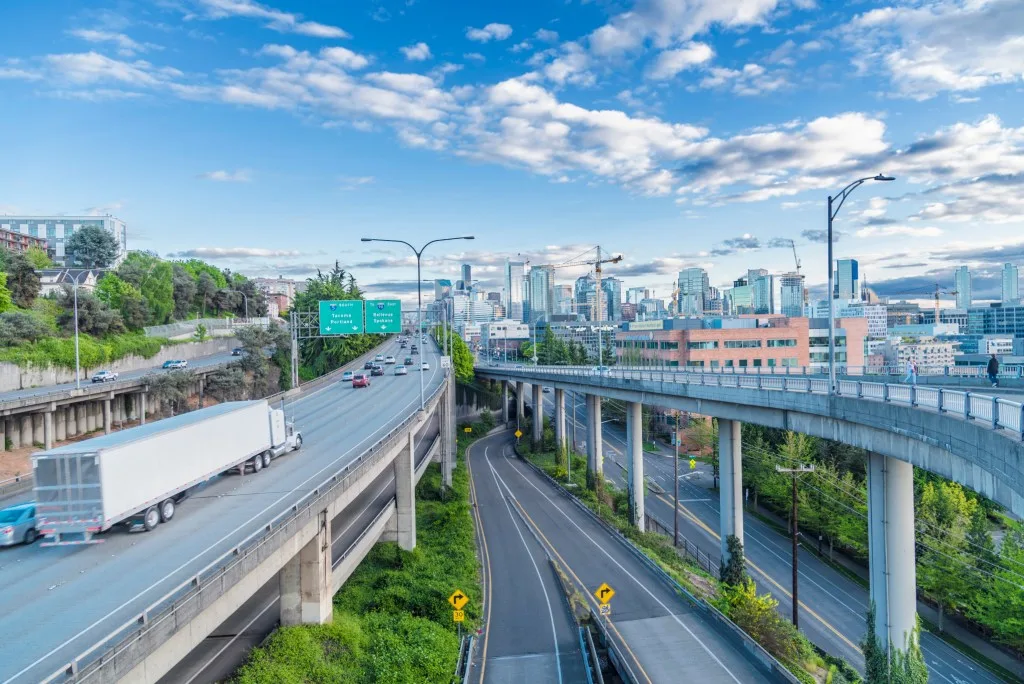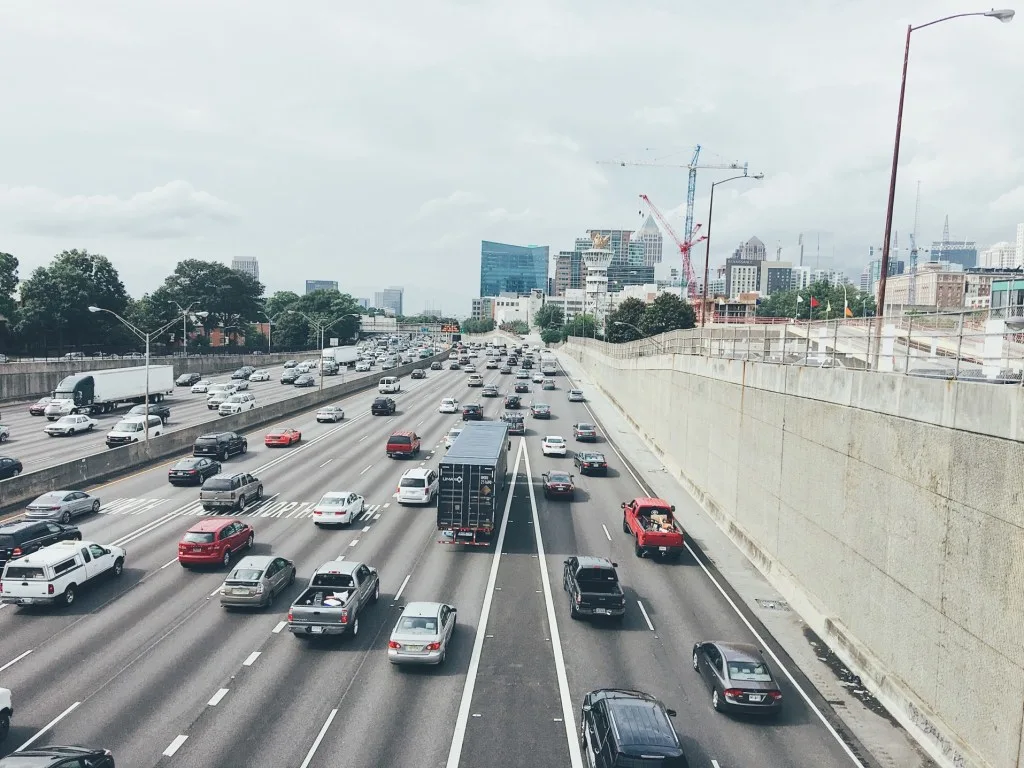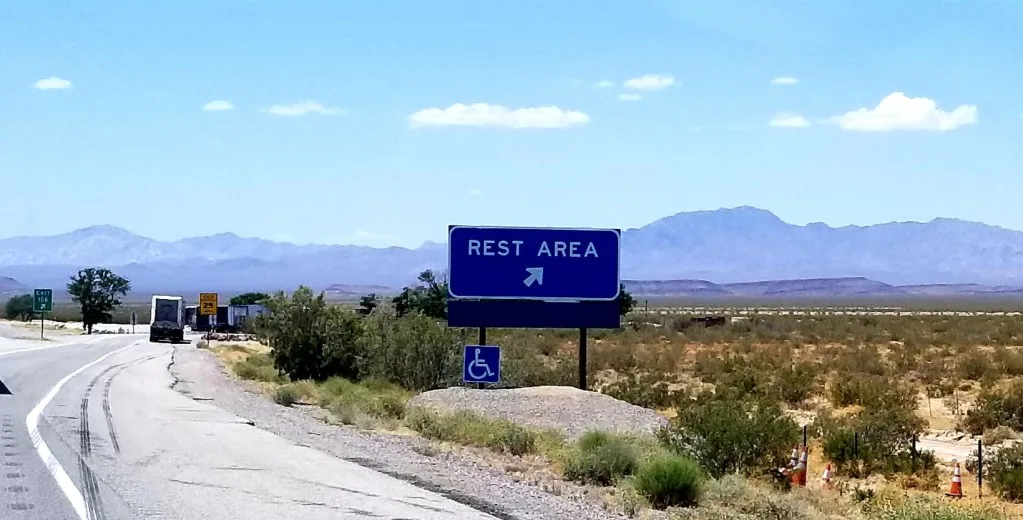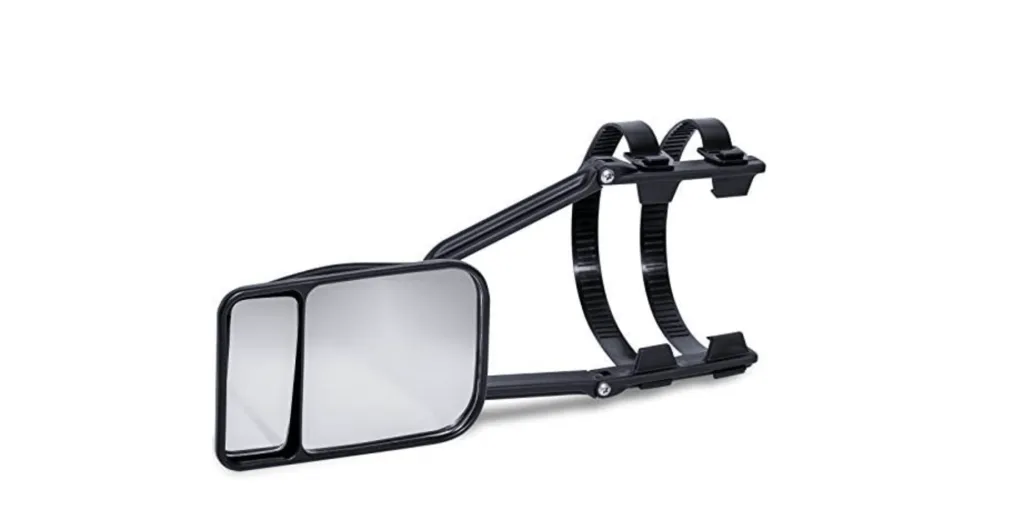Towing an RV on the interstate can be a frightening experience, especially for the first time. Everything while towing is different – maneuvering corners, accelerating, and most importantly, braking.
If you plan to tow regularly, towing on an interstate will likely be the larger bulk of your miles. Today we want to take a closer look at interstate towing and if it’s harder or easier!
Let’s get started!
Benefits of Interstate Towing
Towing on the interstate has several distinct advantages, such as better roads, wider lanes, and taller bridges.

Well Maintained Roads
If you’re going to be on the road for hundreds of miles, a well-maintained road makes it much more enjoyable. Because of the increased traffic volume, interstates often receive first-class attention when an issue needs attention.
Trying to avoid massive potholes on an interstate is never fun, and towing a trailer doesn’t make it any more enjoyable. Potholes in the road are known for increasing the likelihood of a flat tire or damage to suspension or essential parts. $377 is the average annual cost of vehicle repairs due to rough pavement.
Avoiding rough roads is critical to keeping your RV on the open road.
Wide Lanes
RVs aren’t just long; they’re often wide. The Federal Highway Administration requires that urban and rural interstate lanes be 12 feet in width. A typical RV will be anywhere from eight to ten feet wide, and wider lanes can help new and experienced drivers feel more comfortable.

Tall Bridges
RVs are long and wide, and they’re also tall. While many travel trailers are nine to eleven feet tall, fifth-wheel trailers can be 13-feet or more. State and federal vehicle height restrictions limit drivable and towable RVs to a maximum of 13’6” in most states.
Your RV’s height will be unique based on your setup. Be sure you’re aware of your height before hitting the road!
Many states have bridge height requirements, especially on interstates. These height requirements will often range from 14 to 16 feet and vary from one state to another. Be sure you know your rig’s height as you do not want to be approaching a low clearance bridge at 65 MPH, unsure if you’ll fit or not.
Pro Trip: We urge you to trip-route with RV Trip Wizard. It will help you avoid low underpasses.
Disadvantages of Interstate Towing
While interstate towing has its advantages, it also has a couple of disadvantages as well. Let’s take a look at some common disadvantages of interstate towing.
High Speed
Interstates are known for having higher speed limits than other types of roads. Interstate towing means towing at 65+ MPH and often means cars will be passing you. You’ll want to verify the speed rating on your RV’s tires, as some have a rating no greater than 65 MPH.
When you’re towing your RV on the interstate, it will often mean setting your cruise control and adjusting to traffic flow. If you have a lead foot, it may not be easy adjusting to interstate towing. Not only will your tires appreciate the slower speeds, but you’ll likely experience better fuel economy by keeping your speed in check.
There are no trophies or awards for arriving first at the campground. The safety of not only you and your passengers, but others on the road as well, is more important than shaving a few minutes off your time of arrival.

Often Busy
Interstate towing can be a stressful experience, especially during peak traffic times. Changing lanes in a vehicle during heavy traffic can be difficult, but a large trailer requires much more room to change lanes. Changing lanes while towing can be downright frustrating.
It’s often best to avoid busy cities, but it’s not always practical. If you discover that you’ll be traveling through a large or busy city, plan wisely. If you can plan your travel days to pass through these areas on non-peak times, you’ll thank yourself later. It may mean traveling exceptionally early in the morning before commuters hit the road for work or extremely late at night.
Is Interstate Towing Harder or Easier Than Other Highways?
Interstate towing can be easier than other highways. This ease is especially true if traffic volumes are lighter and there are multiple driving lane options. In an ideal situation, you’ll pick a lane, set the cruise control, and watch the miles pass.
Towing on the interstate also means you don’t have to worry about traffic lights and judge whether you can make it through in time. Towing an RV increases a vehicle’s stopping distance. Any time you can avoid slamming on your brakes to come to a stop is a win in our book!
Navigating turns and other obstacles is also not something you must worry about while towing on the interstate. Having fuel stops easily accessible for big rigs is another benefit that makes interstate towing much easier than other highways.
Despite the increased speeds and occasional busy traffic, interstate traffic can be enjoyable. By using interstates while towing, you’ll be able to cover 200-300 miles in a single day. Make sure you find a comfortable place to get some rest before jumping back behind the wheel.

Tips for Interstate Towing
Whether you’re a novice or experienced RV, we have a handful of tips for interstate towing. Let’s dive in!
Use a Weight Distribution Hitch
If you’re towing a travel trailer, a weight-distribution hitch can significantly improve your towing experience. A weight distribution hitch helps equalize the weight between your trailer and truck to improve the balance. If you notice a generous amount of squat in your truck or trailer sway while towing, a weight-distribution hitch can help you.
A weight distribution hitch needs adjusting for your truck and trailer combination. Minor adjustments can make a considerable impact on towing. If you’re purchasing your hitch from a dealer, they’ll likely install and adjust your hitch for you.
Pro Tip: Here’s all the info you need to know about getting a weight distribution hitch for your trailer.
Use Extended Mirrors
Seeing what is going on behind you is essential when towing, especially during interstate towing. You’re able to keep an eye on the traffic around you and any potential issues that could arise with your trailer.
If your tow vehicle does not have extendable mirrors, there are plenty of after-market accessories to help improve your vision while towing.
Keep in mind: These extended mirrors are pretty inexpensive (under $20) and can save you a lot of money!

Don’t Feel Obligated To Drive Fast
It’s easy to get caught up in traffic and adjust your speed to the flow of traffic. Just because everyone around you is driving fast, it doesn’t mean you have to as well. Increased speeds while towing are often a major cause of tire blowouts. These blowouts can cause massive amounts of damage.
Driving too fast is a recipe for disaster, whether it’s blown tires or losing control. Don’t let others dictate your speed while towing. Make sure to drive at a safe speed for your RV and the weather conditions. Arriving safely is better than being in an accident for going too fast.
Pack Your Trailer Properly
Many RVers overlook how they pack their trailer. You want to make sure you’re equally distributing the weight between your RV and tow vehicle. Putting more weight towards the front of your RV will put more weight on the hitch. Too much weight on the hitch, and you’ll lose traction from your front tires. However, too much weight on the rear of your RV, and you’ll be susceptible to trailer sway.
Some RVers also forget that a trailer does not have an unlimited carrying capacity. You may have to leave some things at home to avoid putting too much strain on your RV’s axles and wheels.
There are smart scales that can help RVers know how they distribute the weight of items in their RV. Driving your rig across a CAT Scale is also a great way to see where you stand in terms of weight with your RV.
Interstate Towing is Easier with Time
Whether you’re new to towing or not, interstate towing can be intimidating. The great news is that it gets easier the more you do it. So why are you waiting? Go hitch up and hit the interstate for your next adventure! What interstate is your favorite for towing your RV?
Discover the Best Free Camping Across the USA
To be honest with you, we hate paying for camping. There are so many free campsites in America (with complete privacy).
You should give it a try!
As a matter of fact, these free campsites are yours. Every time you pay federal taxes, you’re contributing to these lands.
Become a FREE CAMPING INSIDER and join the 100,000 campers who love to score the best site!
We’ll send you the 50 Best Free Campsites in the USA (one per state). Access the list by submitting your email below:
Two to thee hundred miles per day? Tats halfa day. More like four to five hundred.
Some Interstates are in bad condition. I recently drove I10 from Phoenix to Baton Rouge. It had some very rough spots with major potholes. Another factor to consider is boredom. Interstates are good for making time but not so good for getting a sense of local color. We are about to embark on an open-ended trip through the west and will try to stay on “blue highways” as much as possible.
Been driving 21 years in a Class A on Interstates and back highways. For time, Interstates are best. For scenery, federal and sometimes state highways are best. Avoid county roads! Just finished a 4,000+ mile trip. First half was non-interstate. Really great. No semis, minimum traffic. Had to turnaround on a few County roads. Don’t trust Maps!
re: speed. I rarely drive over 55 on the interstates when towing. Yeah, I get a few nasty “salutes” on occasion, but my fuel, my choice.
It is important to note that large trucks and vans overtaking your vehicle at a much greater speed can severely buffet your RV. Also it may be necessary to check weather conditions and high wind warnings.